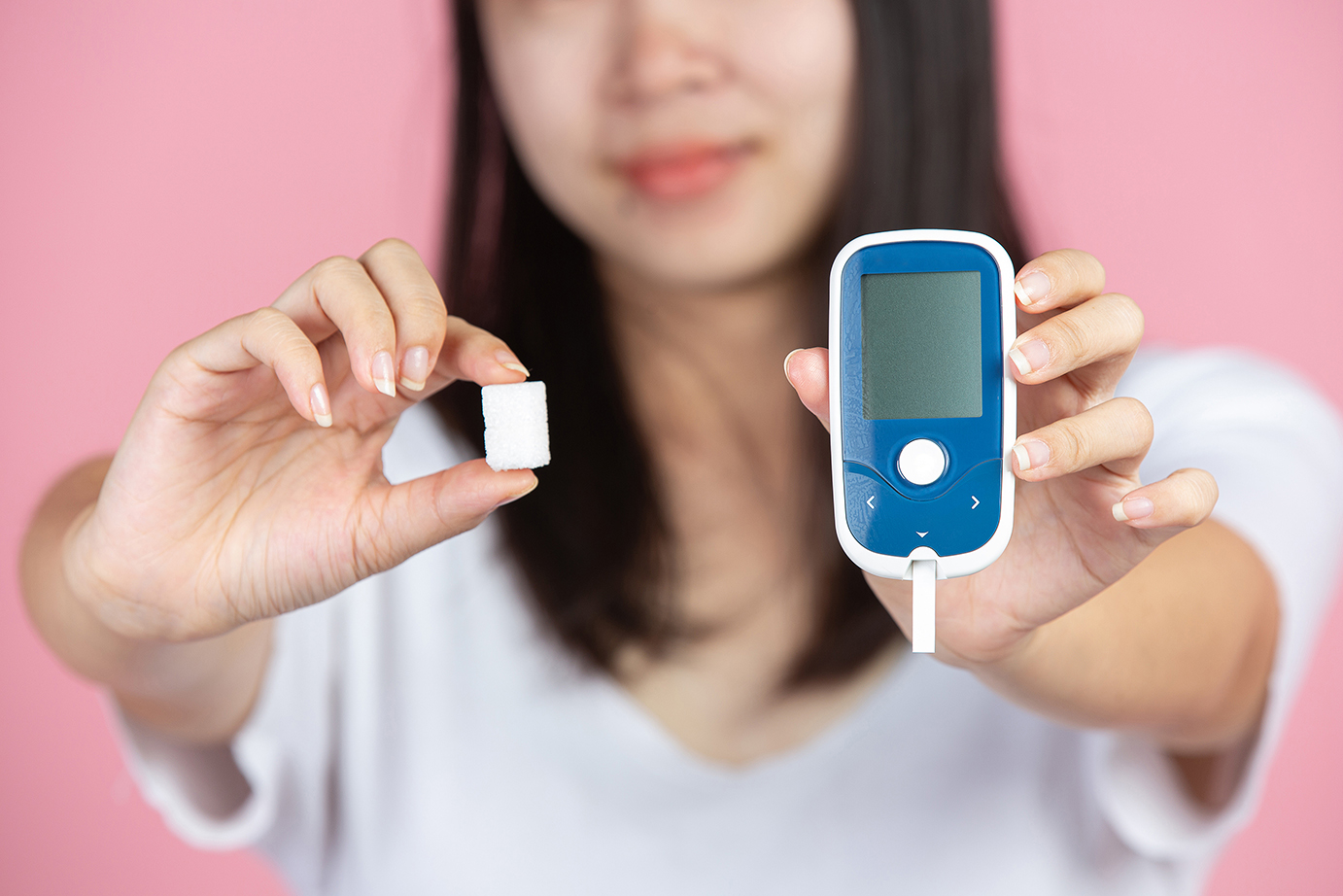Did you know that the weather can affect your blood sugar? Here’s how to manage and keep it stable during the hottest time of the year in Saudi Arabia.
Kids are out of school and there are holidays, get-togethers and reunions during this season. Summer can really throw off your routines, including your health plans. Research suggests that hot weather can lead to more health issues for people with diabetes, the disease that occurs when your blood glucose, or blood sugar, is too high. Keeping blood sugar levels under control is harder during the summer making it more important to take preventive measures to safeguard one’s health.
How can heat affect you?
Did you know that people who have diabetes—both type 1 and type 2—feel the heat more than people who don’t have diabetes? Extreme heat can affect your blood sugar control. If you use insulin or your blood sugars aren’t effectively controlled, you could be at higher risk during the summer months. Worsening blood sugar control or developing low blood sugar is often the main concern.
As recommended by the American Diabetes Association, if your blood sugars are mostly higher than 250 mg/dl, improving your blood sugar control is a must before engaging in heavy physical activity — regardless of the climate and the temperature.
If the heat and your activity make you sweat a lot, you may become dehydrated and your blood glucose levels will rise. This can lead to frequent urination, which then leads to further dehydration and even higher blood sugar levels — a kind of vicious cycle.
Things can become even worse if the treatment includes insulin: dehydration reduces blood supply to your skin and, therefore, the ability of your body to absorb the insulin you’ve injected is reduced.
Here are some warm-weather wisdom to managing blood sugar:
Drink plenty of fluids.
Travel and increased time spent outdoors form the perfect recipe for dehydration. To avoid this, stay hydrated by drinking plenty of water, fresh fruit juices, and caffeine-free beverages, even if you’re not particularly thirsty.
- Carry small bottles of water or low-calorie electrolyte-replenishing sports drinks in a backpack or on a belt while you’re hiking or playing sports.
Adjust your insulin as needed.
Ask your provider or diabetes educator how you should adjust your insulin before exercising. Ask how to adjust your insulin so you can prepare to be physically active.
Test your blood sugar levels frequently.
Since hot temperatures can cause blood sugar levels to fluctuate; it’s a good idea to test more often. Try to keep them in the specified target range (commonly 70 – 180 mg/dl)
- You should continue frequent monitoring for several hours after you’re done with your activity. That’s because the effects of activities on blood sugars usually last for a longer period of time.

Keep items to treat low blood sugar with you.
This includes glucose tabs or glucose gel. Take some snacks with you to help prevent low blood sugar. Discuss possible options with your dietitian.
Protect your medication and supplies.
Take proactive steps to protect your insulin, glucagon kit and other supplies before you head outdoors, regardless of the temperature. Consider a car cooler that plugs into a 12-volt car adapter to keep your supplies at the proper temperature.
- If you’re going away from your car for an extended period, you’ll need to take your supplies along with you.
- If you’re traveling, keep insulin and other medicines in a cooler. Don’t put insulin directly on ice or on a gel pack
Avoid sunburn.
You can get sunburned while sunbathing or while hiking in the summer. Sunburn stresses your body and can raise blood sugar levels. Use a broad-spectrum sunscreen and wear protective eye gear.
Limit how much time you spend outside in extreme temperatures.
While relaxation is the mantra of a good summer, exercise remains important to help people manage diabetes. You can work out outside early morning or late evening but try sticking to an indoor gym or practicing yoga stretches at home when temperatures are higher.
Summertime is synonymous with taking a break and feeling carefree. While having diabetes may make this difficult, taking small and easy steps to manage this disease can help you take control of your health and enjoy the season and live fully.
Dr. Salma Siddiqua earned her MBBS from Batterjee Medical College for Sciences and Technology in Jeddah, Saudi Arabia. She is currently working as a pediatrician in the Ministry of Health Hospitals in Riyadh. She has particular interests in Research and Pediatric Cardiology. She is also a mental health advocate.




